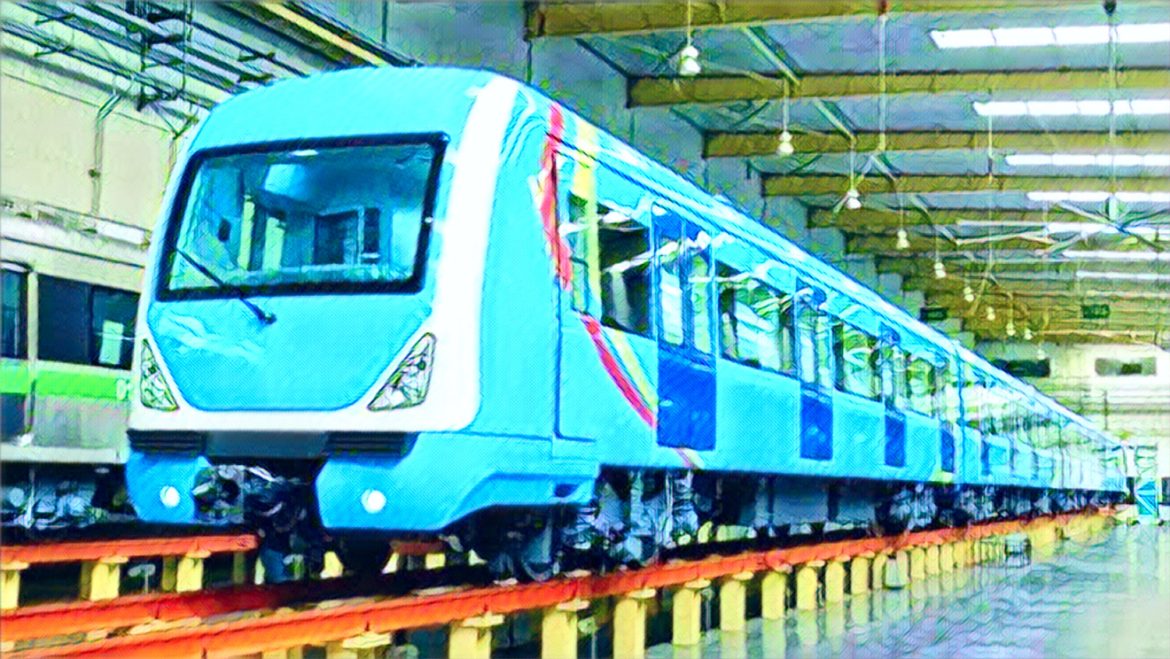Lagos, Nigeria’s most populous city, is set to open its second mass transit rail line in the first quarter of 2024, following the completion of several infrastructure projects associated with the project.
The 37-kilometer Red Line rail, which will run from Agbado to Oyingbo, with eight stations along the way, is expected to move more than 500,000 passengers daily, easing the traffic congestion and pollution that plague the city of over 20 million people.
On Tuesday, Governor Babajide Sanwo-Olu of Lagos State invited his counterpart from Kwara State, AbdulRahman AbdulRazaq, to commission the Ikeja overpass bridge, one of the five overpass bridges planned for the Red Line alignment.
The overpass bridges are designed to prevent fatal accidents and collisions between vehicles and trains at railway crossings, which have been a recurring problem in the past.
Sanwo-Olu said the commissioning of the bridge was a precursor to the commencement of passenger operations of the Red Line, which will be inaugurated by President Bola Tinubu in the first quarter of next year.
He added that the Red Line project was part of his administration’s commitment to the implementation of two rail lines, the Lagos Rail Mass Transit (LRMT) Blue and Red lines, which he promised about three years ago.
The Blue Line, a 27-kilometre rail system on the Lagos-Badagry corridor, was flagged off earlier this year, with the first phase (Marina-Mile 2) already in operation.
The Red Line, which will share tracks with the standard gauge rail being constructed by the federal government, will connect the northern and central parts of the city, linking residential areas with industrial and commercial hubs.
Abimbola Akinajo, the managing director of Lagos Metropolitan Area Transport Authority (LAMATA), the agency overseeing the rail projects, said the Red Line would tremendously improve the state’s GDP and facilitate easy movement for commuters and goods.
She also said the Red Line would reduce greenhouse gas emissions and contribute to the state’s efforts to combat climate change, which poses a serious threat to the coastal city.
The Red Line rail project is part of the state’s strategic transport master plan, which envisages the development of six rail lines, 14 bus rapid transit (BRT) corridors, and over 700 kilometers of roads and highways by 2032.
The plan aims to provide a safe, reliable, and integrated transport system that will enhance the quality of life and socio-economic development of the state.
Lagos, which is often regarded as the economic and cultural capital of Nigeria, has been struggling with inadequate and inefficient transport infrastructure for decades, resulting in long hours of commuting, loss of productivity, and environmental degradation.
The state government has been investing heavily in improving the transport sector, with support from the World Bank, the French Development Agency, and other development partners.
The rail projects are expected to revolutionize the transport system in Lagos and serve as a model for other cities in Nigeria and Africa.
Source: Business Day


